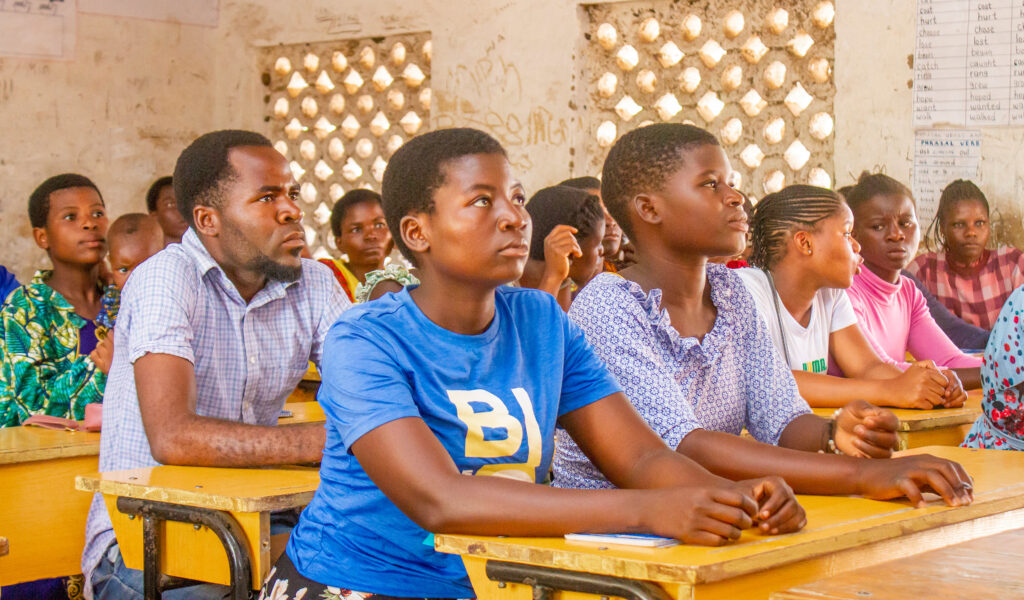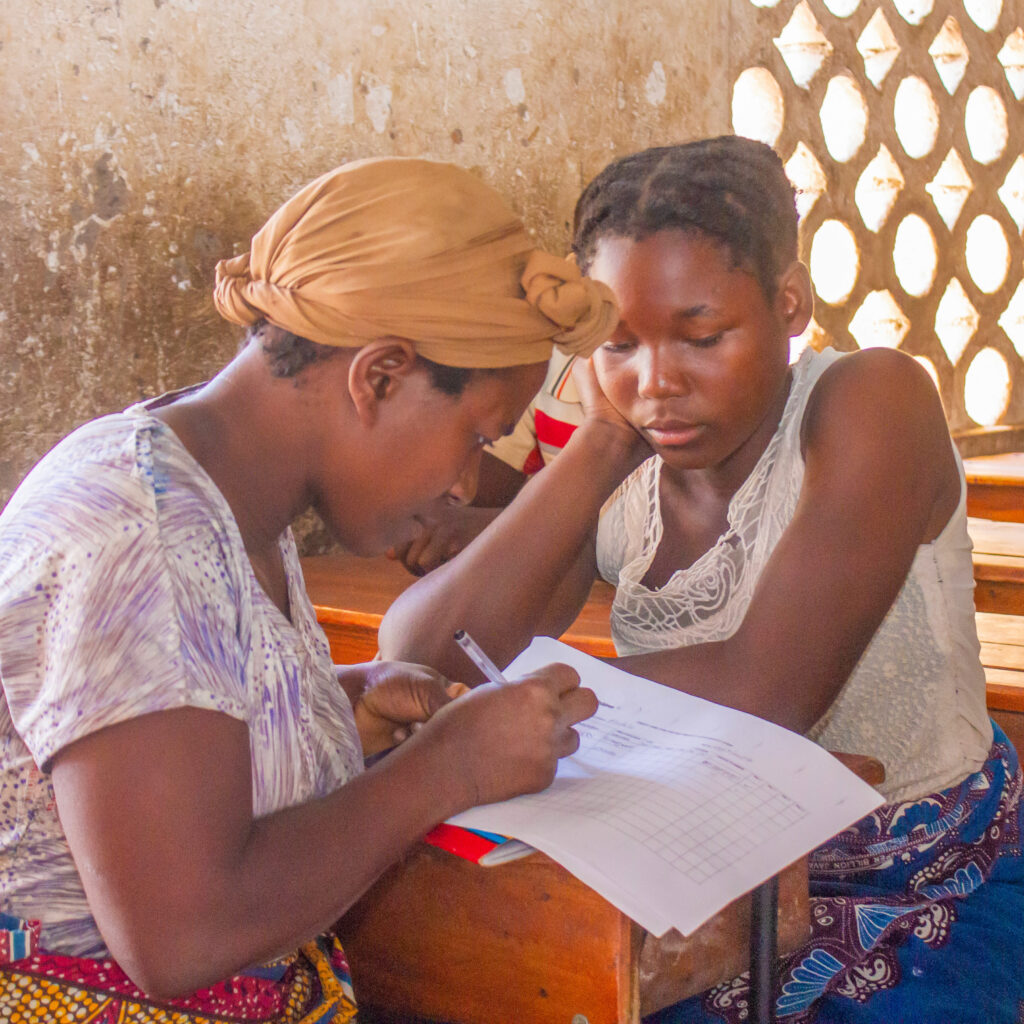
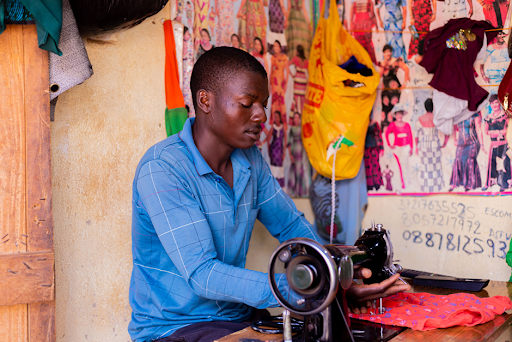
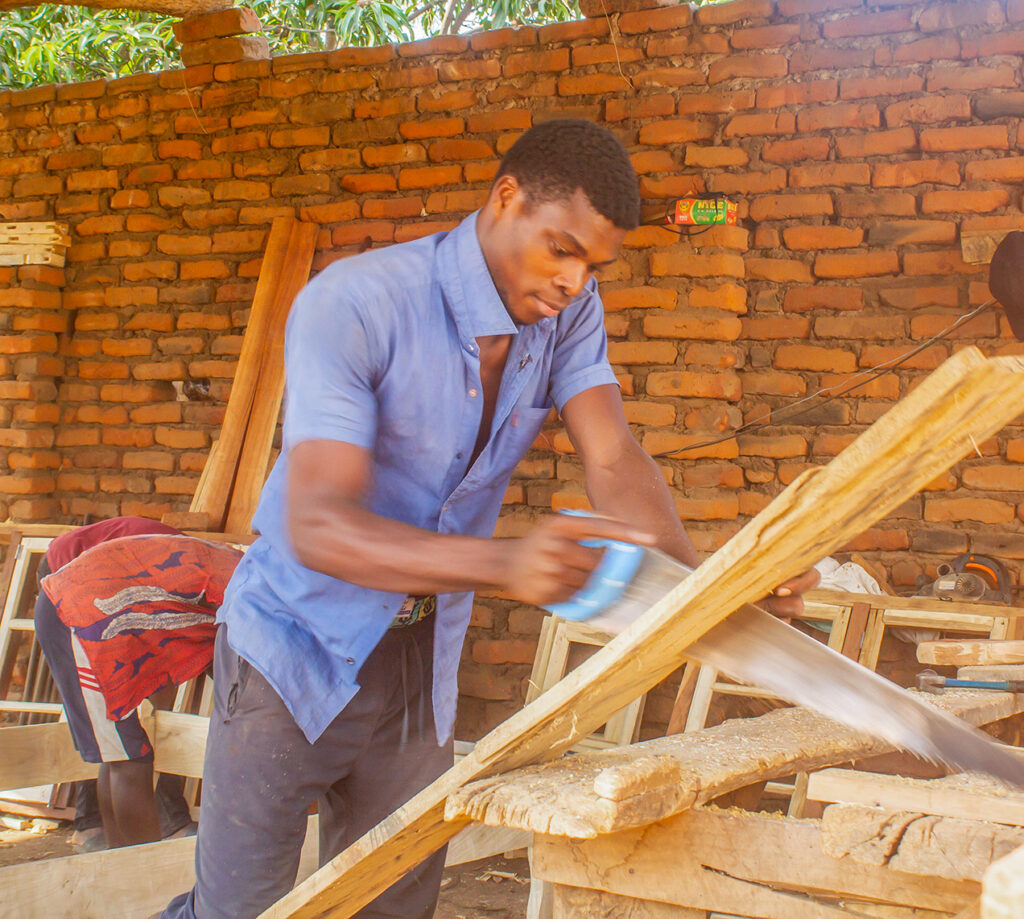
Problem Statement
Povertyremains a major developmental challenge in Malawi, with an estimate of 50.8% of its population being poor as well as youthful, with 23.6% living in ultra- poverty (Malawi Poverty Report, 2020). Children below 18 years’ account for more than half of the total population with a majority (i.e., 60.5%) living in multi-dimensional poverty (Malawi NSO report, 2018).
Due to the high youth unemployment rates, many young people end up being more vulnerable to risks and chronic intergenerational poverty, including push factors for unsafe migration internally and externally in search for employment opportunities with negative impacts on local economies, and reinforcing gender imbalances around childcare and employment opportunities. Youth in the target districts have limited skills to enter into green or other jobs or training opportunities. A major cause of this is low educational attainment to engage in “traditional skills”. Most youth are not supported to transition from secondary school to TEVET/apprenticeships through complementary skills training, for example communication, leadership and business management.
The Green Jobs for Adolescents and Youth contributes to addressing lack of employable skills and income for sustainable transition of young people to adulthood, which contributes to environmental protection and restoration by addressing these three immediate causes:
- Lack of decent jobs and entrepreneurship opportunities
- Lack of green skills that contribute to positive social and environmental outcomes (including technical, vocational and financial skills)
- Youth facing gender inequality, limited opportunities, ableism and gender based violence and do not have a platform to voice their needs and ideas
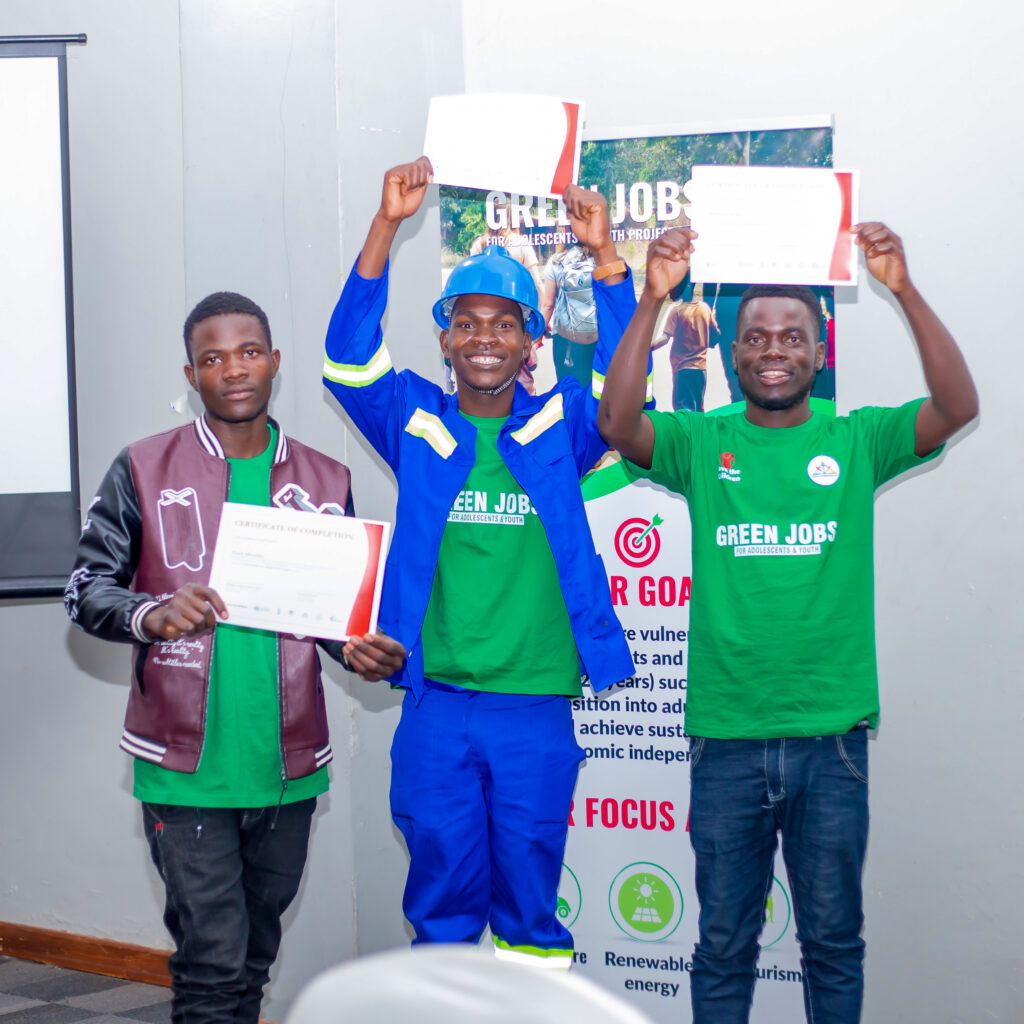
Project eligibility
- Age: Must be 15-24 years old
- Out of school: at least attended primary level education
- Not already enrolled/previously enrolled under any skills development related project
- Member of an active youth club.
- From ultra-poor households:
- Food not lasting more than 3 months after harvest
- No livestock and other productive assets
- Limited cultivable land
- Labour constrained households
Location: Ntcheu and Mzimba districts

